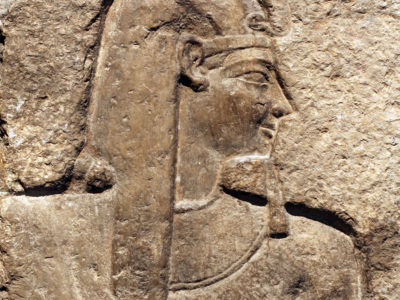I HAVE A FRIEND who fights for Joseph, the “coat of many colors” guy whose brothers sold him to slave traders headed to Egypt..
She insists he was good through and through.
- He wasn’t a tattletale whose brothers hated him for good reason. Instead, he was being a good son when he “reported to his father some of the bad things his brothers were doing” (Genesis 37:2).
- He wasn’t bragging when he told his family about the dreams he had of their stacks of grain bowing down to his stack of grain or of their stars bowing down to him. He was simply reporting dreams God gave him.
Maybe she’s right, who knows?
But what about the deal Joseph worked out for the king of Egypt during a seven-year drought?
As the story goes, the king had a dream that Joseph said predicted the future: seven years of bumper crops followed by seven years of drought.
Joseph said the king should prepare for the drought. So the king put Joseph in charge.
Joseph’s plan: Tax the people 20 percent of their crops for the next seven years. Joseph would warehouse the grain and then sell the people’s own grain back to them when the drought comes.
The Egyptians used up their savings first. Then they traded their livestock for grain, possibly keeping the livestock by tending it as property of the king. Eventually, they gave up their land and their freedom in trade for grain.
Joseph turned the Egyptians into a nation of slaves—serfs who worked for the king on the king’s land and with the king’s livestock.
As Genesis reports it, the Egyptians were simply happy to be alive.
“Joseph then issued a decree still in effect in the land of Egypt, that Pharaoh should receive one-fifth of all the crops grown on his land” (Genesis 47:26). The people could keep the rest of the crops, but the land would belong to the king.
To some folks, it would seem as though Joseph placed survival during the drought on the backs of the people, allowing the king to profit from the natural disaster.
I ask you, does that sound like a story line out of the Andy Griffith Show or a strategy for wealth-building from a Wall Street CFO?
I’m just wondering out loud.


I hope you had a nice Christmas. Don’t wonder too much out loud — or we will have to give you a job at CNN reporting the story of Joseph — despite all the injustice and evil — God orchestrated the events throughout Joseph’s life which preserved the Jewish race….which produced the Seed of Abraham — who is the Messiah — who is the Salvation of Humanity!
Joseph was a trusted steward for good reason, wouldn’t you agree? He looked out for the king’s best interest, which, after all, was his job. Slavery, though definitely looked upon as evil in our culture, was considered normal in Joseph’s time. Two of his elleven brothers had taken on a whole town, because of it’a prince’s wickedness, killed all the men, plundered everything, and took the women and childen as slaves. In Egypt, yes, Joseph bought all the land, and nearly all the people for the king, but isn’t that better than the alternative of them starving to death? Through him not only the nation of Israel was preserved, but also the people of Egypt.
Yep, I don’t think I’d argue with anything you said. Still, enslaving the entire nation wasn’t the only way of doing things.
In a way, what Joe did was a little like communism with an authoritarian godfather looking after everyone. Maybe like China today.
I think it’s okay to read the Bible and realize that what those people did and the decisions they made may not have been God’s preference all time, most of the time, or in some cases, ever.